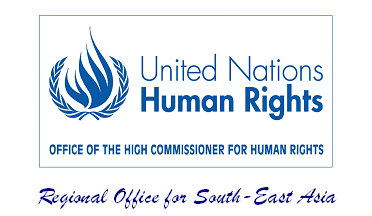After the recent review of Thailand at the 25th Session of the UPR in Geneva and receiving much pressure from the international NGO community, we welcome the decision of Thailand to criminalize torture and enforced disappearances.
As the United Nations Working Group on Enforced or Involuntary Disappearances has reported more than 80 outstanding cases of forced disappearances this decision comes at a time of great urgency. Read the full news release from the United Nations Human Rights Office of the High Commissioner (OHCHR) below.

BANGKOK (25 May 2016)
The United Nations Human Rights Office for Southeast Asia (OHCHR) welcomes Thailand’s decision to criminalize torture and enforced disappearances through a new law and ratify the International Convention for the Protection of All Persons from Enforced Disappearance. This marks a significant step towards upholding international human rights standards, according to OHCHR Acting Regional Representative Laurent Meillan.
Previously, Thailand lacked a legislative framework for addressing torture and involuntary disappearances, hindering accountability for perpetrators and leaving victims and families without legal recourse. However, the new law criminalizes both offenses, allowing for prosecution and potential imprisonment of up to 20 years for torture and life imprisonment if death results. The law also covers enforced disappearances, with similar penalties for officials responsible.
The OHCHR urges the National Legislative Assembly to prioritize passing the law, emphasizing its potential to address Thailand’s longstanding issue of 82 outstanding enforced disappearance cases documented by the United Nations Working Group on Enforced or Involuntary Disappearances.
Furthermore, OHCHR encourages Thailand to enhance safeguards against torture by allowing independent monitoring of detention facilities by the National Human Rights Commission. Ratifying the Optional Protocol to the Convention against Torture (OP-CAT) would further strengthen protections by establishing a National Preventive Mechanism for regular inspections of detention centers. Thailand expressed its commitment to ratify the OP-CAT during its recent Universal Periodic Review, and OHCHR calls for prompt action on this promise.
Overall, Thailand’s decision to criminalize torture and ratify the relevant convention signifies a positive move towards upholding human rights standards. By prioritizing the new law’s passage and implementing further safeguards, Thailand can provide justice for victims, deter future abuses, and strengthen its commitment to human rights.


